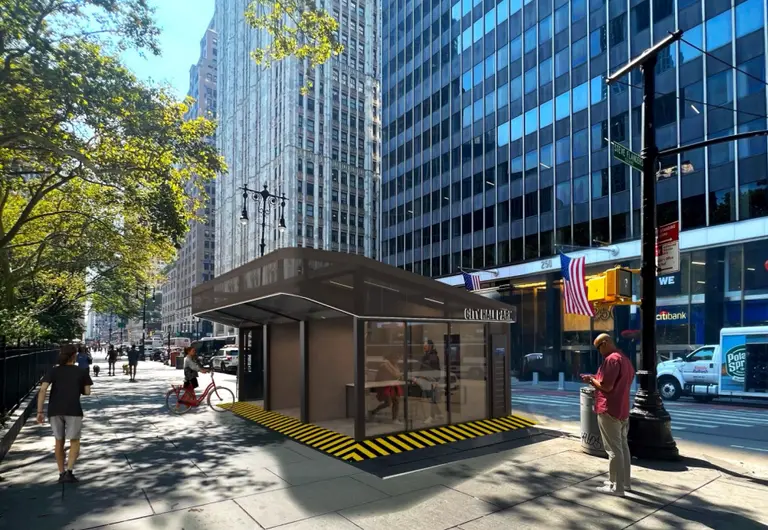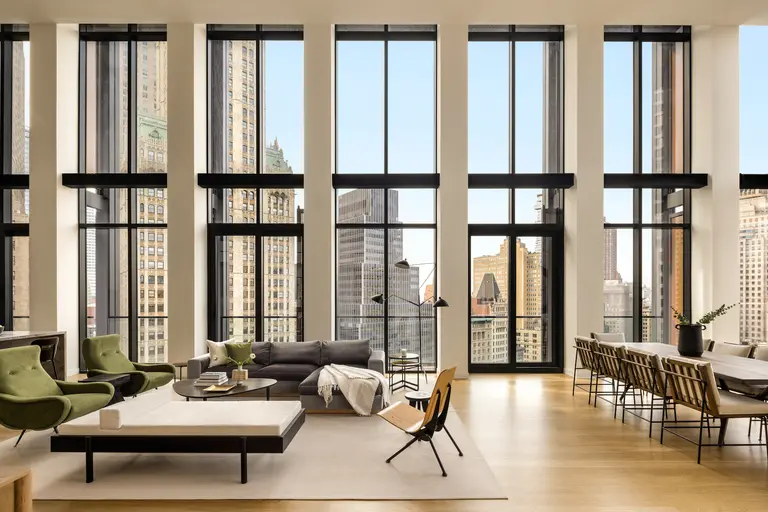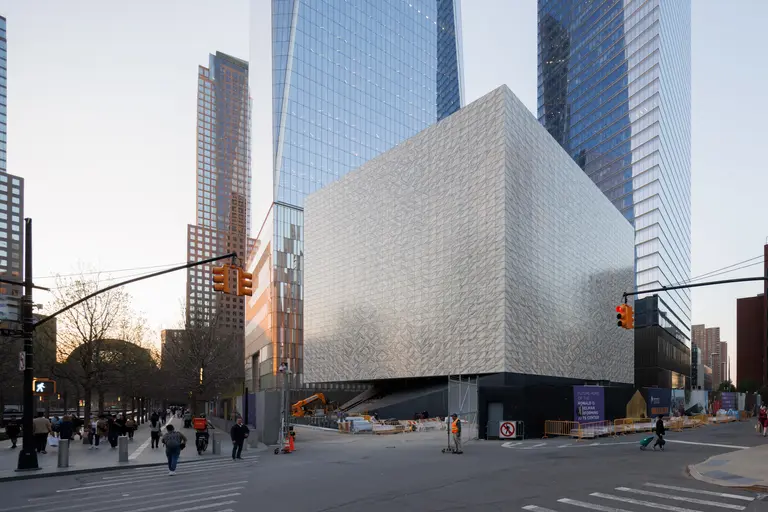Flood regulations may thwart plan to convert Lower Manhattan public spaces to retail
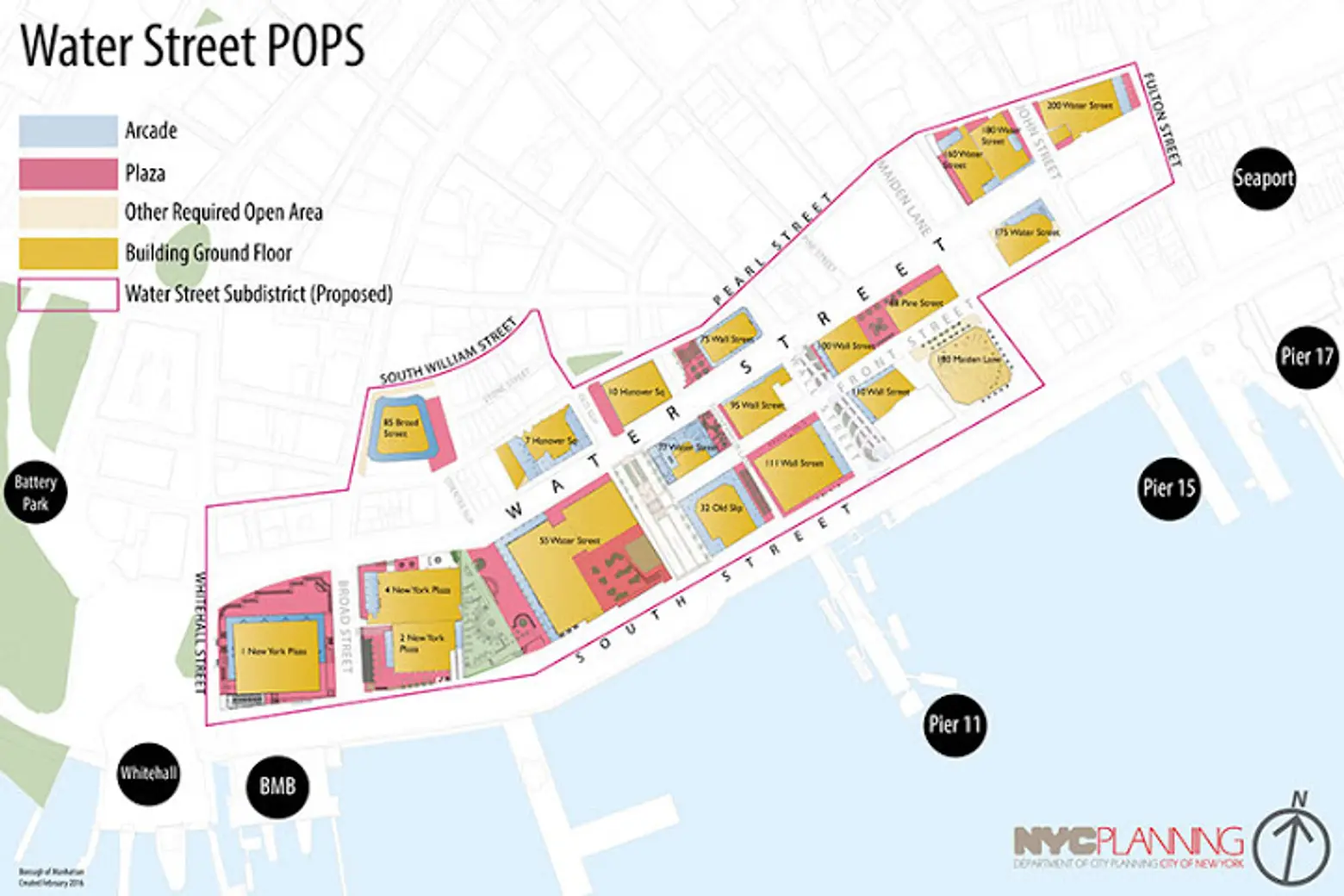
When plans surfaced last March for a rezoning of the Financial District that would allow property owners to bring in retail tenants to the underutilized public plazas and walkways at the base of their buildings, it was met with mixed reviews. While some felt it would increase foot traffic and create a more vibrant street presence, others thoughts it would result in a loss of public space, but a gain for developers. These concerns may be a moot point, however, as Crain’s brings news today that the plan could be “upended by federal flood regulations being applied to more areas of the city since Superstorm Sandy.”
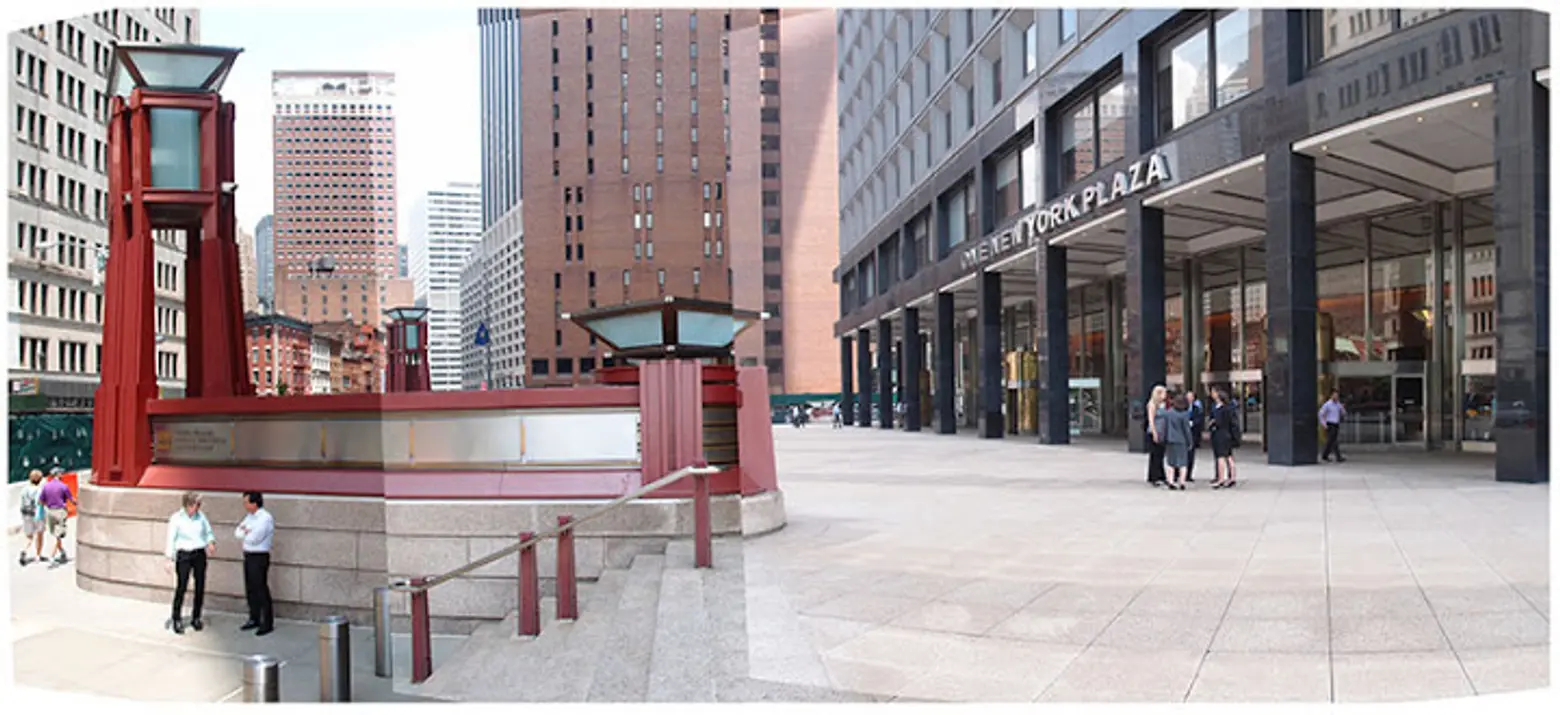

One New York Plaza, one of the properties in question. In its current state (top) and proposed state post-zoning change (bottom)
As 6sqft previously reported, the City Council passed a bill in June that allowed the landlords “to convert the public corridors in front of 20 buildings in the Water Street corridor to retail shops.” This would result in 110,000 square feet of stores, as long as they fund improvements on adjacent pedestrian plazas. This stretch of Water Street is completely within a flood zone that must be built to withstand waters as high as 12 feet, but it also must be built in accordance with a city law that says retail storefronts be mostly glass. And herein lies the issue.
Initially, the planning department said the facades could be fortified with detachable metal shields in the event of a flood, but they’ve since backpedaled, saying these gates may not be in compliance with the American Society of Civil Engineers’ recommendations. This nonprofit group creates standards that comply with FEMA regulations, which the city looks to for building and construction rules. They’re expected to be released within the next few weeks, and it’s not unlikely that they’ll agree with sentiments that the flood barriers are “prone to human error” and detach during floods. As Crain’s explains, “That would require building owners to install ‘aquarium glass,’ a more expensive solution that could deter some landlords from going ahead with the retail and plaza improvements.”
[Via Crain’s]
RELATED:





